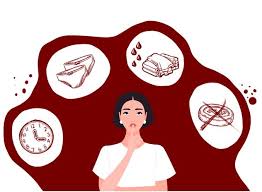
Menstrual hygiene is a critical aspect of sanitation that significantly impacts the health, dignity, and empowerment of women and girls. Proper menstrual hygiene management (MHM) involves access to clean menstrual products, safe and private sanitation facilities, and accurate information about menstruation. Neglecting menstrual hygiene can lead to health issues, social stigma, and educational setbacks, especially in developing countries.
Maintaining good menstrual hygiene is essential for preventing infections and other health complications. Poor hygiene practices during menstruation can increase the risk of urinary tract infections (UTIs) and reproductive tract infections (RTIs). Using clean menstrual products and changing them regularly, along with proper washing and disposal methods, helps in reducing these health risks.
Access to adequate sanitation facilities is vital for effective menstrual hygiene management. Many girls and women lack access to private toilets with water and soap, making it challenging to manage menstruation safely and with dignity. This lack of facilities can lead to absenteeism from school or work and restrict participation in daily activities.
education and awareness about menstruation are crucial in breaking the silence and stigma surrounding it. Many girls are unprepared for menstruation due to a lack of information, leading to confusion and embarrassment. Comprehensive menstrual education can empower girls to manage their periods confidently and reduce the associated stigma.
Addressing menstrual hygiene is not only a health issue but also a matter of human rights and gender equality. Ensuring access to menstrual products, sanitation facilities, and education enables women and girls to participate fully in society. Efforts to improve menstrual hygiene contribute to the overall well-being and empowerment of women and girls worldwide.




 click and follow Indiaherald WhatsApp channel
click and follow Indiaherald WhatsApp channel